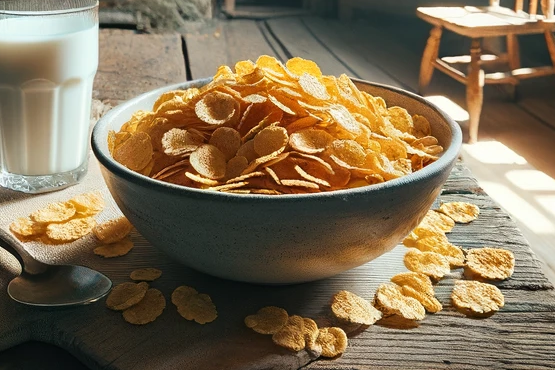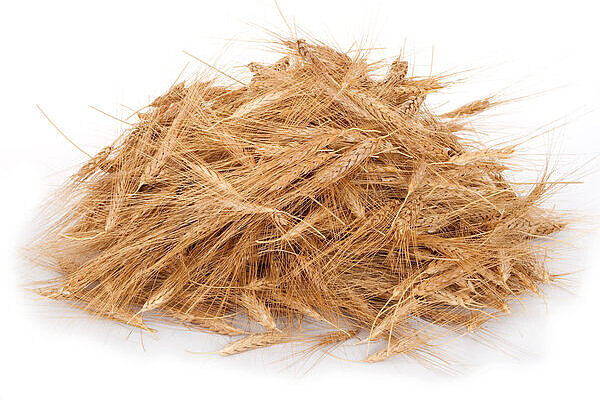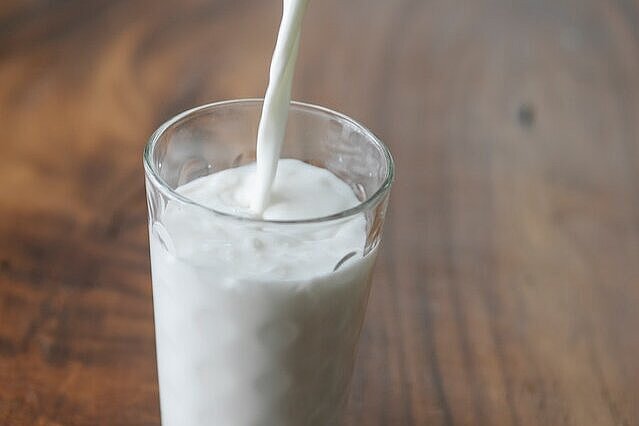Muesli

Muesli is a popular breakfast for many people, but is it also suitable for dogs? In this article, you will find out what muesli is, what advantages and disadvantages it has for dogs and what you should look out for if you want to feed your four-legged friend muesli.
What is muesli?
Muesli is a mixture of various cereal flakes, nuts, seeds and dried fruit. There are many different types of muesli, which vary in composition, taste and quality. Muesli is usually mixed with milk, yoghurt or fruit juice and eaten cold.
Muesli is a healthy food for humans as it contains a lot of fiber, vitamins, minerals and vegetable proteins. It can also help regulate blood sugar levels, increase satiety and aid digestion.
Benefits of muesli for dogs
Muesli can also have some benefits for dogs when fed in moderation. For example, muesli can be a good source of carbohydrates that provide energy and support muscle function. Muesli can also add variety to a dog's diet and keep them interested.
Some ingredients in muesli can also have positive effects on a dog's health. For example, oatmeal can be good for the skin and coat as it contains zinc and biotin. Nuts can provide omega-3 fatty acids, which have an anti-inflammatory effect and strengthen the cardiovascular system. Dried fruit can contain antioxidants that protect cells from free radicals.
Disadvantages of muesli for dogs
However, muesli can also have some disadvantages for dogs if it is fed too often or too much. For example, muesli can contain too many calories, which can lead to overweight and obesity. Muesli can also contain too much sugar, which can increase blood sugar levels and lead to tooth decay.
Some ingredients in muesli can also be harmful or even toxic to dogs. For example, raisins and grapes can cause kidney failure, chocolate can trigger cardiac arrhythmia and macadamia nuts can cause paralysis. Some spices such as cinnamon or vanilla can also cause gastrointestinal problems.
What you should watch out for,if you want to feed your dog muesli
If you want to feed your dog some muesli from time to time, there are a few things you should bear in mind:
- Choose a high-quality organic muesli with no added sugar or artificial flavors.
- Pay attention to the ingredients list and avoid anything that is poisonous or incompatible for dogs.
- Only feed small amounts of muesli as a treat or addition to normal dog food.
- Mix the muesli with water or unsweetened plant milk instead of cow's milk or fruit juice.
- Monitor your dog after feeding muesli for any signs of discomfort or allergies.
Muesli is a tasty and healthy breakfast for humans, but not necessarily for dogs. If you want to do something good for your dog, you can offer him some muesli as a snack from time to time, but only in small quantities and with caution. Make sure that the muesli does not contain any harmful ingredients and that your dog tolerates it well. This way you can give your dog a treat without endangering his health.
If you notice any signs of hypersensitivity or poisoning in your dog, you should see your vet immediately. We are not a substitute for a vet, but we try to be as accurate as possible. Every dog reacts differently and we recommend you get a second opinion or consult your vet if in doubt.
Stay healthy and take good care of your four-legged friend!😊
Similar to Muesli
Oat flakes are a cereal product made from the grains of the oat plant. The grains are cleaned, steamed, roasted and rolled into flakes. Oat flakes are rich in fiber, protein, vitamins and minerals....
Cornflakes are a breakfast cereal product made mainly from corn. They are made by flattening corn kernels, which are then dried and roasted to give them their characteristic crunchy texture. They...
Wheat germ is the sprout of wheat that sprouts from the grain when it begins to germinate. They make up only about 2.5% of the weight of the grain, but contain most of the nutrients. Wheat germ is...
Milk is a white liquid produced by mammals to feed their young. Milk contains many nutrients, such as protein, fat, carbohydrates, vitamins and minerals, which are important for growth and...



